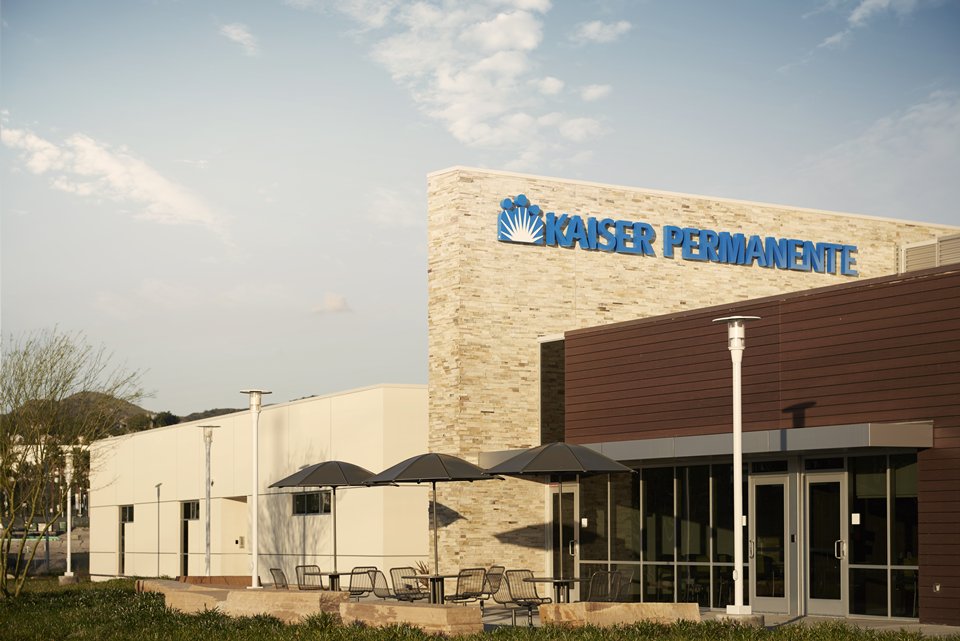100,000 Kaiser Permanente members who have donated DNA for research into the genetic and environmental causes of disease to be studied
October 12, 2009 (Oakland/San Francisco, Calif.) – The Kaiser Permanente Research Program on Genes, Environment, and Health (RPGEH) and the University of California, San Francisco (UCSF) have been awarded $24.8 million over two years by the National Institutes of Health (NIH) to create a new resource for studying disease, health, and aging.
With this support, Kaiser Permanente’s RPGEH and UCSF will conduct a genome-wide analysis of DNA samples from 100,000 Kaiser Permanente members from Northern California who have volunteered to join the RPGEH. This new and detailed genetic information – which has never before been generated on such a large and diverse population – will be linked to decades of historical clinical and other health-related information on these participants, taken from health surveys and the Kaiser Permanente electronic health record, the world’s largest civilian electronic health record. Environmental information will also be included in the new resource, such as information about air and water quality, proximity to parks and healthy foods, and much more. The resulting resource will give researchers an entirely new platform for studying genetic and environmental influences over time on a wide variety of health conditions, across diverse populations.
The National Institute on Aging (NIA), part of the NIH, was the key driver for the grant, in part because the average age of those whose DNA will be genotyped is 65. “A body of research tells us that both genes and environmental factors influence how we age,” explains NIA director Richard J. Hodes, MD. ”We are very excited about the opportunity to develop this extraordinary database in an older population, to facilitate studies of gene-environment interaction as determinants of health, disease, and longevity.”
The UCSF Institute for Human Genetics is the partner on the project and will perform the actual genotyping. Grant funds will be shared by both institutions.
“This investment of federal dollars will provide researchers with access to a uniquely rich resource for research on genetic and environmental effects on health, aging, and disease,” says Cathy Schaefer, PhD, executive director of the RPGEH. “Providing access to genome-wide genetic data on such a large population, combined with rich clinical and environmental data, is without precedent.”
For example, the genetic information generated by the project will include new data regarding drug metabolism and drug response, information that may help researchers to discover genetic factors that explain differences between people in response to medications. This would in turn help doctors provide patients with the best medicines for them individually, with less trial and error, based on their genetic background. It may also help researchers understand why some patients with cancer or heart disease, for example, develop certain symptoms and other patients do not, insights that may lead to new treatments and, in some cases, new ways to lessen the severity or even prevent disease.
Neil Risch, Ph.D., co-director of the RPGEH, director of the UCSF Institute for Human Genetics, and co-chair of the Department of Epidemiology and Biostatistics at UCSF, will share lead investigator responsibilities for the grant with Schaefer. The genotyping will be performed at the UCSF Genomics Core Facility, part of the Institute for Human Genetics, under the director of Pui-Yan Kwok, MD, Ph.D., a co-investigator on the grant and the Henry Bachrach Distinguished Professor at UCSF.
“This award represents a landmark in the development of the RPGEH resource, and fulfillment of years of planning,” says Risch. “Following the human genome project, the development of very efficient and inexpensive high-density assays of genetic variation spanning the entire human genome is what has enabled this study to move forward. The marriage of this technology with the unrivaled comprehensive longitudinal health information in the Kaiser Permanente databases on a very large number of subjects provides an unprecedented opportunity to revolutionize genetic epidemiology research. We are delighted that the NIH shares in this vision, in addition to our prior funders.”
The two-year grant was awarded by the NIH with funds from the American Recovery and Reinvestment Act (ARRA). Funding for the grant came from three NIH sources: the Office of the Director, the National Institute on Aging, and the National Institute of Mental Health.
“This grant is recognition of the excellence of research that Kaiser Permanente is able to do. No other research institution can match the size of the genetic data base which we are developing through the RPGEH,” says Robert Pearl, MD, executive director and CEO of The Permanente Medical Group. “I am optimistic that the combination of quality research, physician excellence and technology will allow our nation to solve the healthcare challenges it faces today and in the future.”
Following several years of planning and development, Kaiser Permanente Northern California Division of Research launched the RPGEH in 2005 and initiated enrollment of participants from the Northern California region’s three million Kaiser Permanente members in 2007. The research program has already obtained biospecimens from more than 110,000 members for its biobank, as part of plans to collect DNA samples and health surveys from 500,000 Kaiser Permanente members in Northern California by 2013, which will make it one of the largest and most diverse population-based biobanks in the world.
This new NIH grant builds on an $8.6 million grant awarded in December 2008 by the Robert Wood Johnson Foundation’s Pioneer Portfolio (RWJF) that is funding the collection and storage of the first 200,000 DNA samples into the RPGEH, as well as the building of the secure health and environmental databases needed to power this groundbreaking genetic resource.
“The unequaled size and power of this biorepository will enable researchers to analyze genetic, environmental and other health data in ways that were never before possible. The findings they generate will help us target effective prevention and treatment strategies that dramatically improve people’s health and the quality of their care,” said RWJF President and CEO Risa Lavizzo-Mourey, MD, MBA. “We’re excited that this substantial new NIH funding positions the RPGEH to take major leaps forward toward realizing this vision.”
Research at Kaiser Permanente is funded almost entirely from grants, such as those from the National Institutes of Health and private foundations. Generous grants to support the RPGEH have also come from the Wayne and Gladys Valley Foundation and the Ellison Medical Foundation. Kaiser Permanente’s Community Benefit Program has also provided financial support for the RPGEH.
Participation in the RPGEH is completely voluntary. An individual’s genetic information is not used in genetic research studies without his or her written consent.
As with all studies carried out by the Division of Research, protecting confidentiality and security of member information is a first priority. The Division of Research maintains separate information and databases from the Kaiser Permanente health plan and members’ medical records.
Only Kaiser Permanente members in Northern California may participate in the RPGEH. Those who are interested in joining the RPGEH should look for information about the program in the U.S. mail from Kaiser Permanente.
About the Research Program on Genes, Environment, and Health (RPGEH)
As part of the Kaiser Permanente Northern California Division of Research, the RPGEH is a developing resource for scientific research. The RPGEH is designed to facilitate epidemiologic studies of both genetic and environmental influences on common health conditions, such as heart disease, diabetes, cancer, asthma, mental health disorders, and many others. The building blocks of the RPGEH are:
Genetic information from saliva or blood samples provided by RPGEH participants in Northern California;
Data collected from RPGEH participants through self-reported health surveys;
Historical and ongoing clinical data on RPGEH participants from the Kaiser Permanente electronic health record; and new environmental databases that will allow researchers to study the health effects of environmental factors such as air pollution and water quality as well as neighborhood characteristics, such as proximity to parks, grocery stores, and healthy foods.
For more information, go to www.rpgeh.kaiser.org or call 1-866-369-2157.
About UCSF Institute on Human Genetics
The UCSF Institute for Human Genetics serves as a focal point for campus-wide activities in human genetics and has faculty members engaged in human genetics research spanning the four schools: Medicine, Nursing, Pharmacy, and Dentistry. The major aim of the Institute is to create an exciting, productive and collaborative environment for research and training in human genetics, and to provide institutional support and resources, such as the Genomics Core Facilities, for faculty research and for teaching in a number of UCSF graduate and medical school programs. For more information, go to www.humgen.medschool.ucsf.edu.
About UCSF
The University of California, San Francisco is a leading university dedicated to promoting health worldwide through advanced biomedical research, graduate-level education in the life sciences and health professions, and excellence in patient care. For further information, please visit www.ucsf.edu.
About the Kaiser Permanente Division of Research
The Kaiser Permanente Division of Research conducts, publishes, and disseminates epidemiologic and health services research to improve the health and medical care of Kaiser Permanente members and the society at large. It seeks to understand the determinants of illness and well-being and to improve the quality and cost-effectiveness of health care. Currently, the Division of Research’s 400-plus staff members are working on more than 250 epidemiological and health services research projects. For more information, go to www.dor.kaiser.org.
About Kaiser Permanente
Kaiser Permanente is committed to helping shape the future of health care. We are recognized as one of America’s leading health care providers and not-for-profit health plans. Founded in 1945, our mission is to provide high-quality, affordable health care services to improve the health of our members and the communities we serve. We currently serve 8.6 million members in nine states and the District of Columbia. Care for members and patients is focused on their total health and guided by their personal physicians, specialists and team of caregivers. Our expert and caring medical teams are empowered and supported by industry-leading technology advances and tools for health promotion, disease prevention, state-of-the art care delivery and world-class chronic disease management. Kaiser Permanente is dedicated to care innovations, clinical research, health education and the support of community health. For more information, go to: www.kp.org/newscenter.





This Post Has 0 Comments